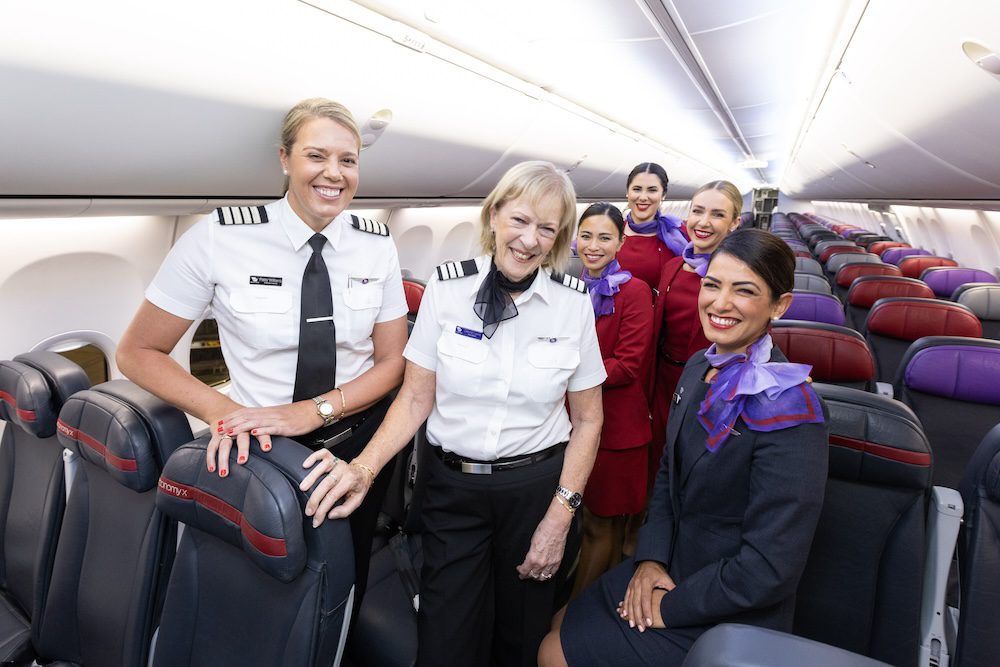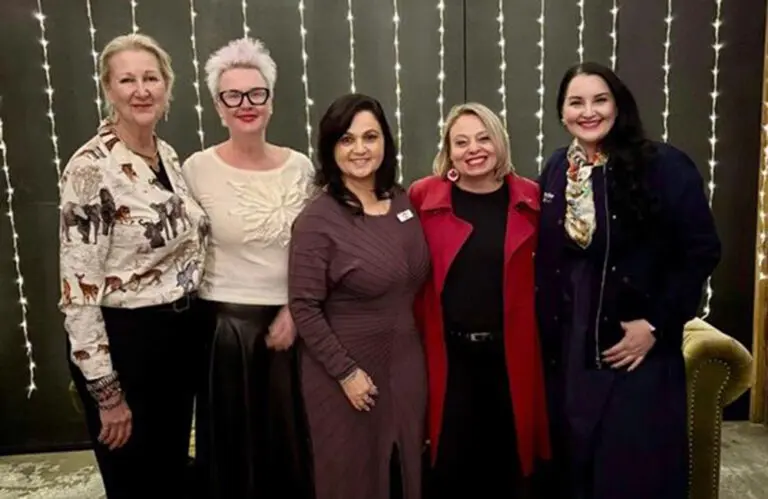This International Women’s Day, the travel industry was ready with its usual fanfare—celebrating female leaders, rolling out sometimes pink-washed campaigns, and reaffirming commitments to equality. And that’s all good stuff. Celebrating progress is important, but if we don’t speak up about what we still need to improve, nothing will truly change.
According to Tourism Research Australia, women make up 61% of Australia’s tourism workforce, yet they still occupy just 26% of key leadership roles. They are disproportionately represented in part-time roles, face career stagnation after motherhood or while caring for elderly parents, and often find themselves the only woman in the room when decisions are made.
What’s holding them back? The things we don’t say out loud.
The gender pay gap is still very real
Aviation, tourism, and hospitality are all billion-dollar industries, yet gender pay disparities persist. According to the Workplace Gender Equality Agency (WGEA), women in the accommodation and food services sector earn 13.8% less than men, while those in transport, postal, and warehousing (including aviation) earn 16.2% less.
But the gap isn’t just about salaries. It’s about opportunities—who gets the speaking slots at industry events, who’s invited to leadership programs, and who is given the stretch roles that lead to C-suite promotions.
Menopause: The career killer we need to talk about
Menopause leads to a significant number of Australian women reducing work hours, retiring early, or leaving their jobs (Australian Senate Inquiry, 2023). Yet few travel businesses have formal policies to address it.
Hot flushes in a boardroom? Fatigue on a long-haul flight? Brain fog in a high-pressure client meeting? Many women suffer in silence or leave their roles, with little to no workplace support.
Policies are emerging in some corporate offices, but frontline travel workers—airline crew, travel agents, tour guides—are left out of the conversation. What does workplace flexibility look like when your job is in the sky?

The motherhood penalty vs the fatherhood bonus
The travel industry loves the word ‘flexibility,’ but for many women, that means fewer hours, fewer promotions, and fewer leadership prospects.
Women with children are 37% less likely to be promoted than their male colleagues, according to WGEA data. Meanwhile, men with children are statistically more likely to receive a pay rise or leadership opportunity.
Women are still expected to juggle careers and caregiving, while men are assumed to be singularly focused on work. In an industry that runs 24/7 across time zones, that assumption influences hiring, promotions, and leadership opportunities—often without anyone saying a word.
When an industry is ‘women’s work’
History shows that when a sector is dominated by females, wages tend to stagnate or decline. Teaching, nursing, and caregiving roles—essential yet historically undervalued are prime examples. The travel industry, as a service sector with a majority-female workforce, faces a similar risk.
Despite its economic significance, tourism has long suffered from the perception that it’s about passion over profit, fun over finance—sentiments often attached to jobs where women dominate. The result? Lower pay, fewer leadership opportunities, and a slow climb towards equity.
To shift this narrative, travel must position itself as a powerhouse industry, not just an experience-driven sector. That means:
- Valuing expertise—Compensating skills and knowledge on par with male-dominated industries.
- Elevating leadership—Ensuring women aren’t just present in numbers but in decision-making roles.
- Reframing flexibility—Recognising that work-life balance shouldn’t come at the cost of career stagnation.
Gender equality isn’t just about fixing numbers—it’s about transforming perceptions. Travel is a billion-dollar industry that fuels economies. It’s time to treat it that way.
A global fight with global stakes
The conversation about gender equality in travel isn’t happening in a vacuum. Around the world, women’s rights are under scrutiny, and hard-won progress is at risk. From increasing restrictions on reproductive rights to political figures questioning gender equity policies, the global stage reflects an unsettling reality: the fight is far from over.
The United Nations’ theme for International Women’s Day this year is ‘For ALL Women and Girls: Rights. Equality. Empowerment’, a reminder that gender equality isn’t just a talking point—it’s a global necessity. The theme underscores that without meaningful investment in policies, opportunities, and protections for all women and girls, progress stalls. Symbolic gestures aren’t enough—economic and structural change is essential.
Travel is a global industry, and it has an opportunity to lead by example. The way it treats women in its workforce, the policies it implements, and the leadership opportunities it creates all send a message. Will it be a message of progress or stagnation?
So what now? Less talk, more change.
Every International Women’s Day, the industry talks about change. But real change requires:
- Pay transparency—publish salary bands, conduct gender pay audits, and close the gap.
- Menopause policies—paid leave, workplace adjustments, and normalising the conversation.
- Flexible leadership pathways—because women shouldn’t have to choose between career growth and caregiving.
- Sponsorship, not just mentorship—actively pushing women into leadership roles instead of just offering advice.
Because until the industry stops applauding itself for ‘empowering women’ and starts dismantling the barriers in their way, nothing really changes.







